If you’re planning to travel to Singapore, you’ll want to know how much money changers charge for their services. Money changers are a common sight in Singapore, and they offer a convenient way to exchange your currency for Singapore dollars. However, it’s important to understand the fees and charges associated with money changing, as they can vary depending on the provider.
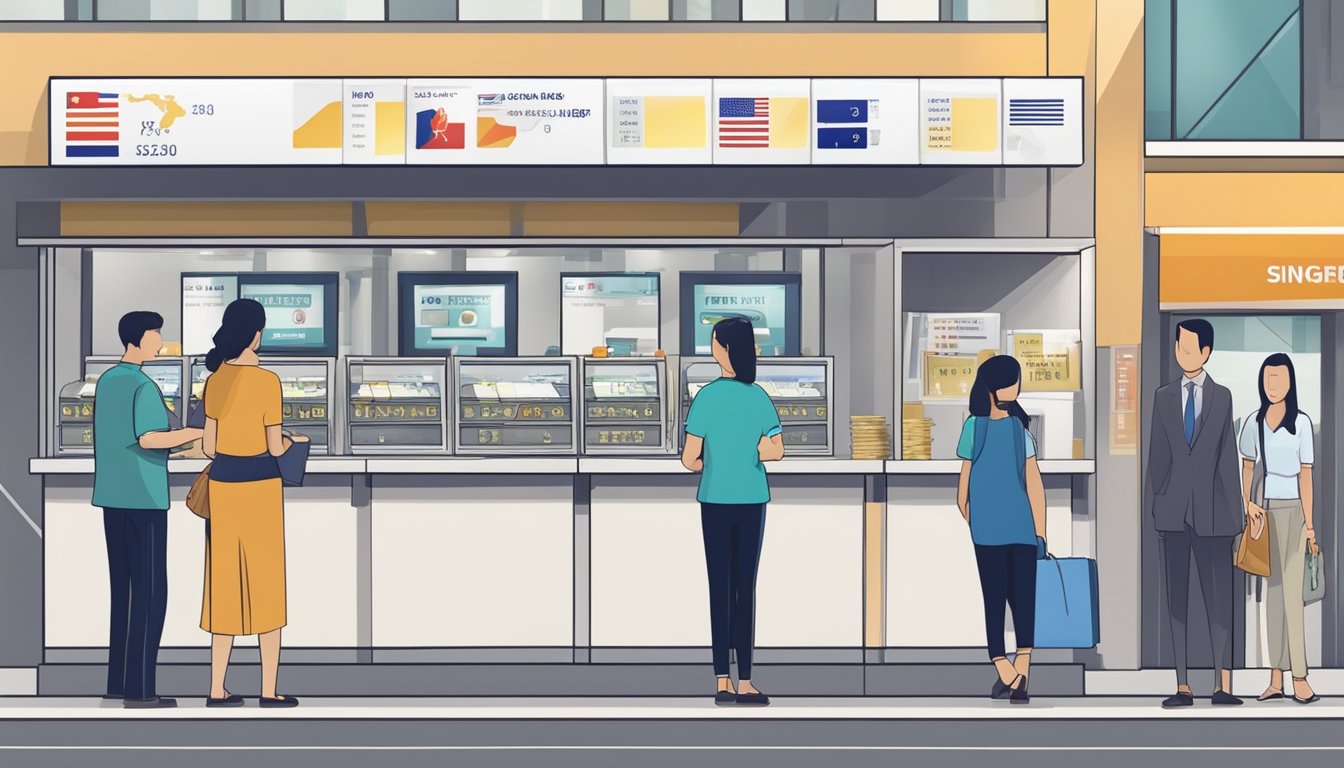
When it comes to money changing in Singapore, you’ll find a variety of providers offering different exchange rates and fees. Some money changers offer competitive rates, while others charge a premium for their services. Additionally, some money changers may charge additional fees for certain transactions, such as exchanging large amounts of currency or using a credit card. Understanding these fees and charges is essential to getting the best deal when changing money in Singapore.
Key Takeaways
- Money changers in Singapore offer a convenient way to exchange your currency for Singapore dollars, but it’s important to understand the fees and charges associated with their services.
- Rates and fees can vary depending on the provider, so it’s important to shop around to find the best deal.
- When changing money in Singapore, be aware of additional fees for certain transactions and always check the exchange rate before making a transaction.
Understanding Money Changers in Singapore

If you’re travelling to Singapore, you’ll need to exchange your currency for Singapore dollars. Money changers are one of the most popular options for this task. In this section, we’ll explore the role of money changers in Singapore and the popular money changing hubs.
The Role of Money Changers
Money changers are businesses that specialize in exchanging one currency for another. They offer competitive exchange rates and often charge lower fees than banks. Money changers are regulated by the Monetary Authority of Singapore (MAS), which ensures that they follow strict guidelines to protect consumers.
Popular Money Changing Hubs
Singapore has several popular money changing hubs, including The Arcade, Lucky Plaza, Orchard Road, Parkway Parade, and Chinatown. These hubs are known for their competitive exchange rates and convenient locations.
The Arcade
The Arcade is a popular destination for money changers due to its central location and proximity to Raffles Place. It’s also known for its competitive rates and wide range of currencies available. It’s a great place to exchange less common currencies such as Thai Baht, Japanese Yen, and Malaysian Ringgit.
Lucky Plaza
Lucky Plaza is another popular destination for money changers. It’s known for its competitive rates and convenient location on Orchard Road. Lucky Plaza is a great place to exchange Philippine Peso, Thai Baht, and Malaysian Ringgit.
Orchard Road
Orchard Road is one of the most popular shopping destinations in Singapore, and it’s also home to several money changers. These money changers offer competitive rates and are convenient for tourists staying in the area.
Parkway Parade
Parkway Parade is a popular shopping mall located in the east of Singapore. It’s also home to several money changers, making it a convenient location for tourists staying in the area.
Chinatown
Chinatown is a vibrant neighbourhood in Singapore known for its rich cultural heritage. It’s also home to several money changers offering competitive rates. It’s a great place to exchange Chinese Yuan, Japanese Yen, and Malaysian Ringgit.
In conclusion, money changers are a convenient and cost-effective way to exchange currency in Singapore. The popular money changing hubs offer competitive rates and convenient locations for tourists. When exchanging currency, always compare rates and fees to ensure that you’re getting the best deal possible.
Currency Exchange Rates
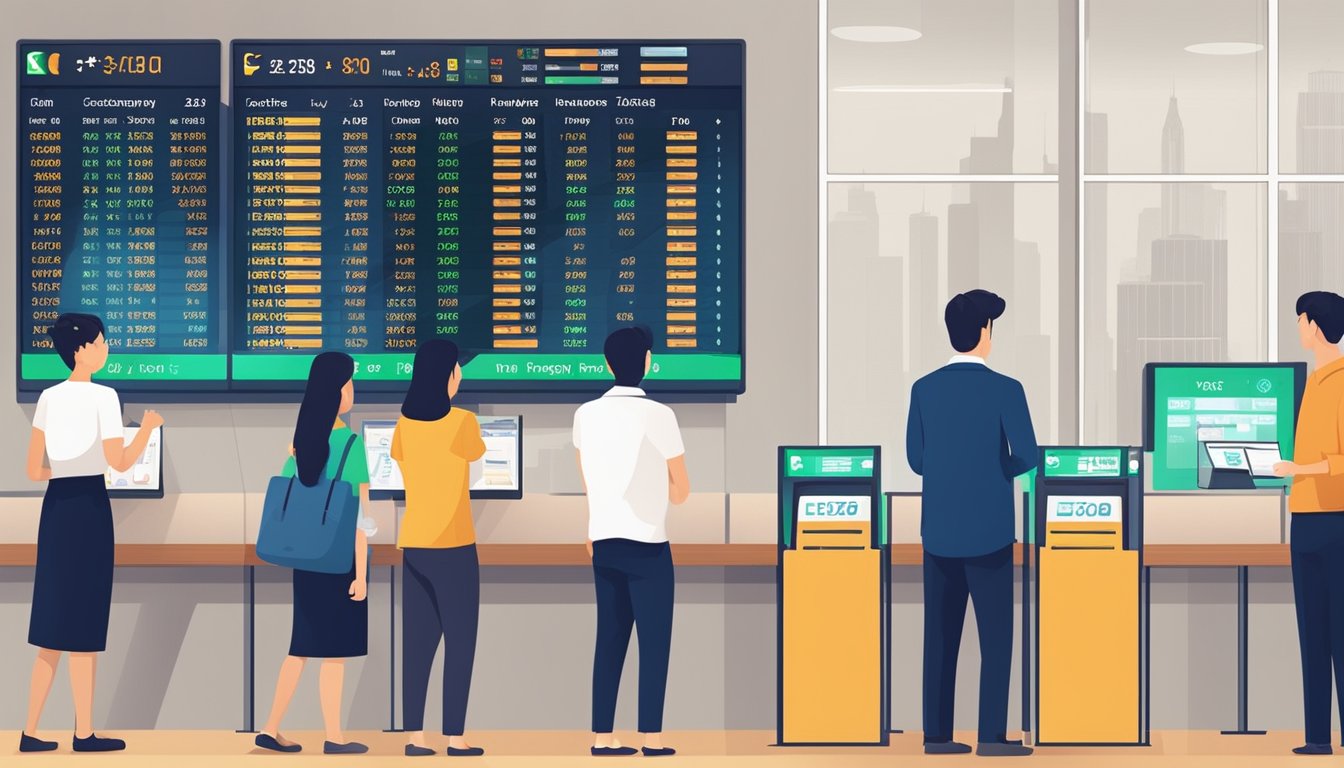
If you’re planning to exchange currency in Singapore, you’ll want to know how much money changers charge. The exchange rate is the most important factor in determining how much you’ll get for your money. However, there are other factors that can affect the exchange rate.
Factors Affecting Exchange Rates
The exchange rate is influenced by a number of factors, including supply and demand, interest rates, inflation, and political stability. When there is high demand for a currency, its value will increase, and when there is low demand, the value will decrease. Interest rates can also affect the exchange rate, as higher interest rates can attract foreign investment, which can increase demand for the currency. Inflation can also impact the exchange rate, as high inflation can decrease the value of the currency. Finally, political stability can influence the exchange rate, as uncertainty can lead to a decrease in demand for the currency.
Comparing Exchange Rates at Different Outlets
When looking to exchange currency in Singapore, it’s important to compare exchange rates at different outlets. Money changers typically offer rates that are slightly lower than the mid-market exchange rate, which is the rate at which banks and other financial institutions exchange currencies. However, some money changers may offer better rates than others, so it’s important to shop around. You can use online comparison tools to compare exchange rates at different outlets, or you can visit several money changers in person to compare rates.
In conclusion, when exchanging currency in Singapore, it’s important to consider the exchange rate as well as other factors that can affect it. Additionally, it’s important to compare exchange rates at different outlets to ensure that you’re getting the best deal possible. By doing your research and shopping around, you can ensure that you get the most money for your currency.
Fees and Charges for Currency Exchange
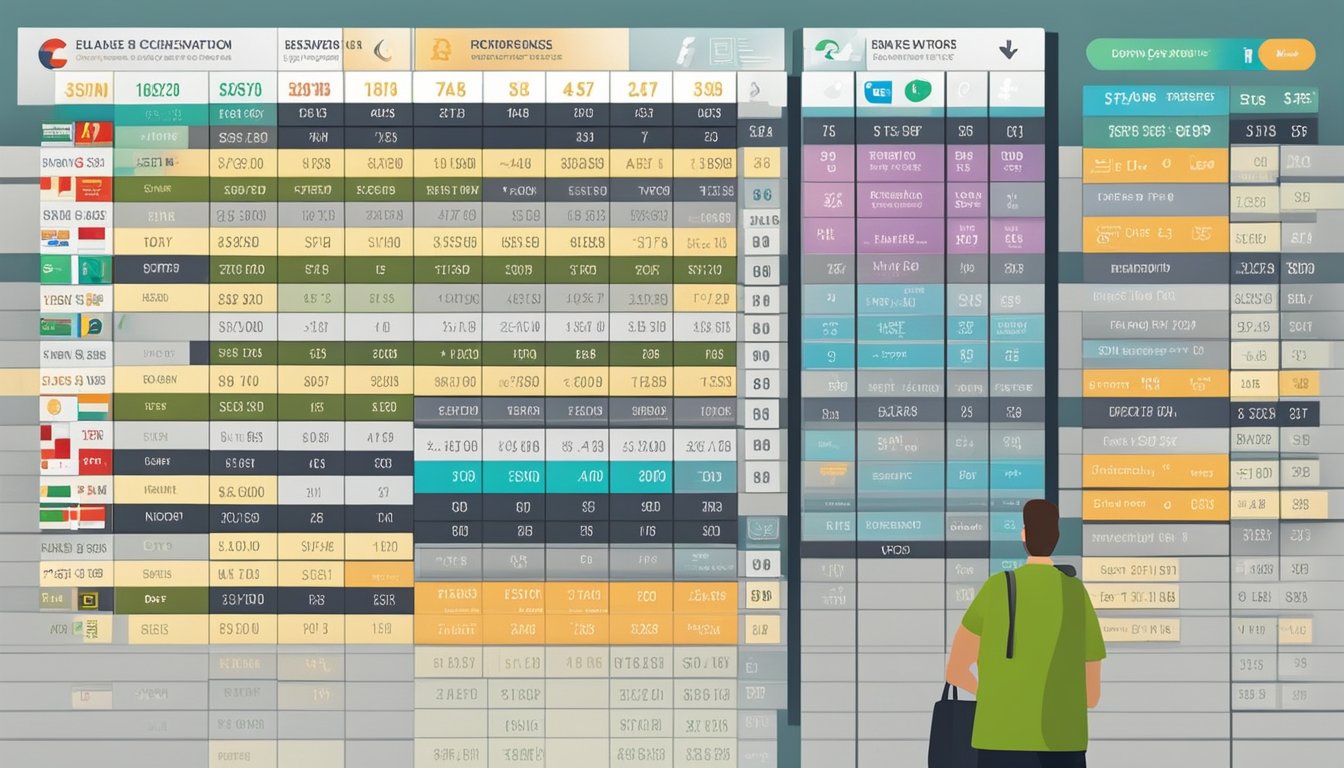
If you are planning to exchange your currency in Singapore, you should be aware of the fees and charges that money changers might charge you. These fees can vary depending on the money changer, the currency you want to exchange, and the amount you want to exchange.
Types of Fees
Money changers in Singapore typically charge two types of fees: commission and exchange rate margin. Commission is a fee that is charged as a percentage of the amount you want to exchange. Exchange rate margin is the difference between the rate at which the money changer buys and sells a currency. This margin is how money changers make their profit.
The commission fee can range from 0.5% to 2% of the amount you want to exchange. The exchange rate margin can also vary, but it is usually around 1% to 2%. Some money changers might offer a lower commission fee, but they might have a higher exchange rate margin, so it’s important to compare both fees to get the best deal.
How to Avoid Hidden Charges
Apart from the commission and exchange rate margin, some money changers might also charge hidden fees. These fees are not always disclosed upfront, so it’s important to ask the money changer if there are any additional fees before exchanging your currency.
One way to avoid hidden fees is to ask for the total amount you will receive in the currency you want to exchange. This way, you can compare the amount you will receive to the mid-market rate to see if the exchange rate margin is fair. You can also ask the money changer if there are any additional fees, such as processing fees or handling fees.
Another way to avoid hidden fees is to use online money changers or apps. These platforms usually offer lower exchange rate margins and transparent fees, so you can see exactly how much you will receive and how much you will be charged.
In conclusion, when exchanging currency in Singapore, it’s important to be aware of the fees and charges that money changers might charge you. By comparing the commission fee, exchange rate margin, and asking about any hidden fees, you can ensure that you get the best deal possible.
Best Practices for Money Changing
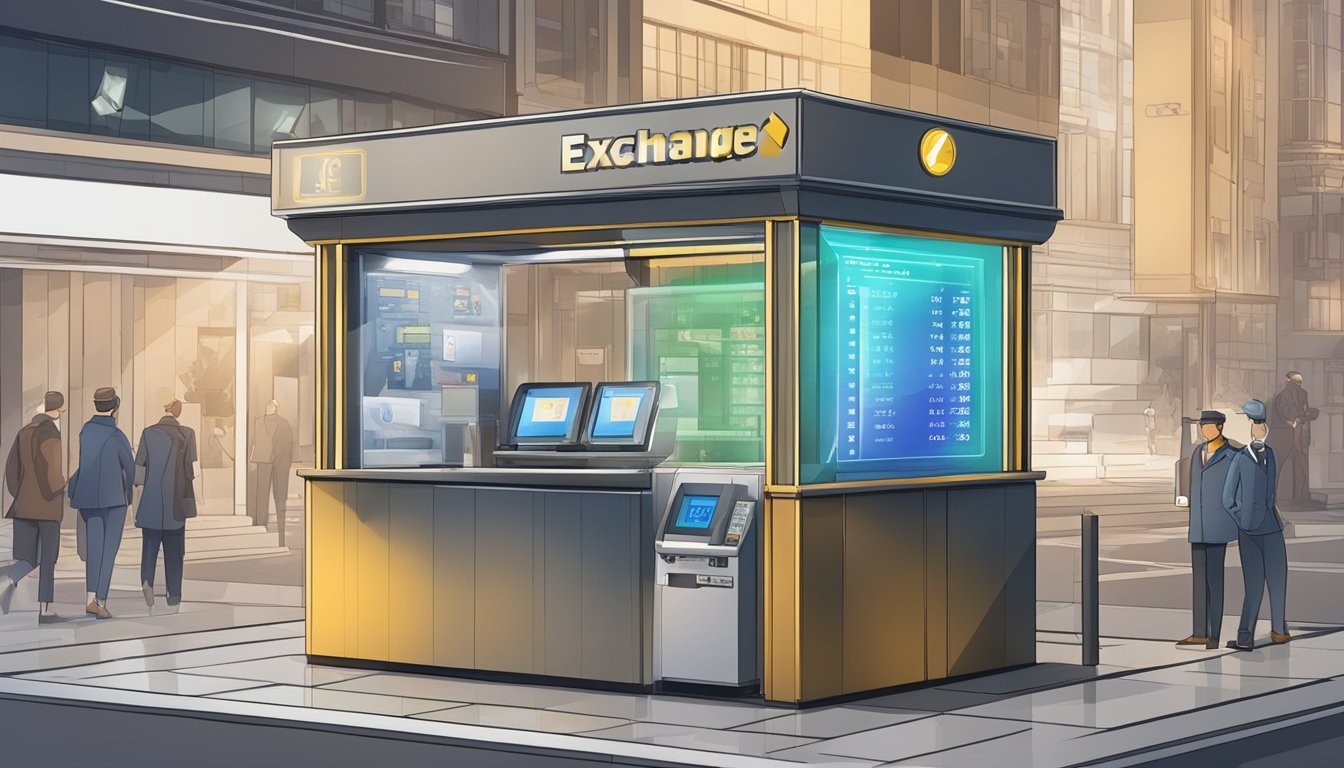
When to Change Money
Changing money can be a tricky business, but knowing when to change your money can help you get the best rates possible. One of the best times to change your money is when the exchange rate is in your favour. Keep an eye on the exchange rates and make the most of the dips. Another good time to change money is when you are in a country with a weaker currency. In this case, you can get more of the local currency for your dollars.
Bargaining for Better Rates
Bargaining for better rates is a common practice in many countries, and Singapore is no exception. When shopping for the best rates, don’t be afraid to bargain with the money changers. Ask if they can give you a better rate or if they can waive their commission fee. You may be surprised at how much you can save by simply asking.
It’s also a good idea to shop around for the best rates. Don’t settle for the first money changer you come across. Check out a few different money changers and compare their rates. You may find that one money changer offers significantly better rates than another.
When bargaining for better rates, it’s important to be polite and respectful. Don’t be aggressive or pushy, as this can be seen as rude. Instead, approach the money changer with a friendly attitude and ask if they can help you out. If they can’t offer you a better rate, thank them for their time and move on to the next money changer.
By following these best practices, you can get the best rates possible when changing your money in Singapore. Remember to keep an eye on the exchange rates, bargain for better rates, and shop around for the best deals.
Digital Alternatives to Traditional Money Changers
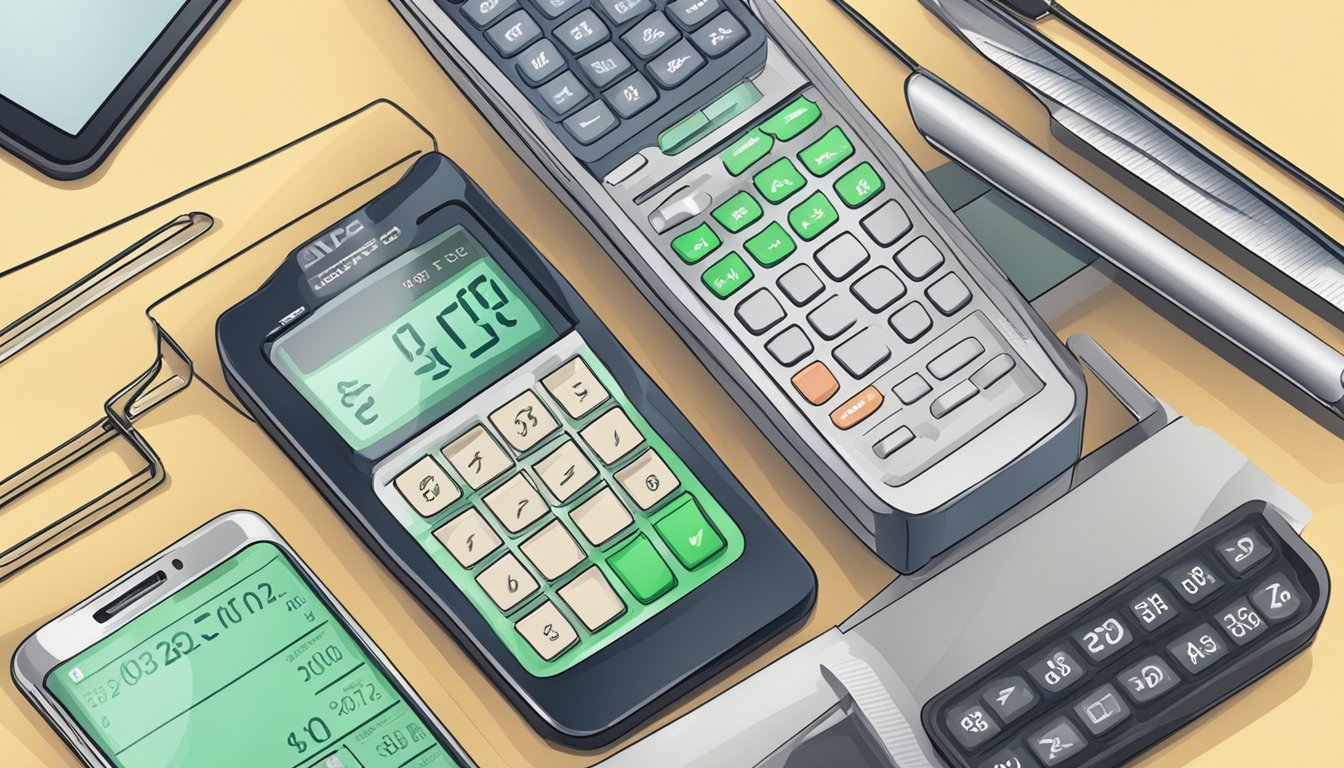
If you’re looking for alternatives to traditional money changers, digital options are becoming increasingly popular. Here are some options to consider:
Multi-Currency Accounts
Multi-currency accounts are a great option if you frequently travel abroad or need to make international payments. These accounts allow you to hold multiple currencies, so you can avoid paying conversion fees every time you make a transaction.
One popular multi-currency account is Wise (formerly TransferWise). With Wise, you can hold and exchange over 50 currencies at the real exchange rate, with no hidden fees. You can also get a debit card that allows you to spend in any currency at the real exchange rate.
Another option is Revolut, a mobile banking app that offers a multi-currency account and debit card. With Revolut, you can hold and exchange over 30 currencies, and you can spend in over 150 currencies at the interbank exchange rate.
Online Currency Converters
Online currency converters are another option if you need to exchange currency but don’t want to visit a physical money changer. These converters allow you to see the exchange rate and convert currencies online.
One popular online currency converter is XE. XE offers real-time exchange rates and allows you to convert over 180 currencies. You can also sign up for rate alerts to get notified when the exchange rate for a particular currency reaches a certain level.
Another option is CurrencyFair, an online peer-to-peer currency exchange platform. With CurrencyFair, you can exchange currency with other users at the best available rate. The platform charges a small fee for each transaction, but the rates are often better than what you would get at a traditional money changer.
Overall, digital alternatives to traditional money changers offer convenience and often better rates. Consider these options when you need to exchange currency or make international payments.
Frequently Asked Questions
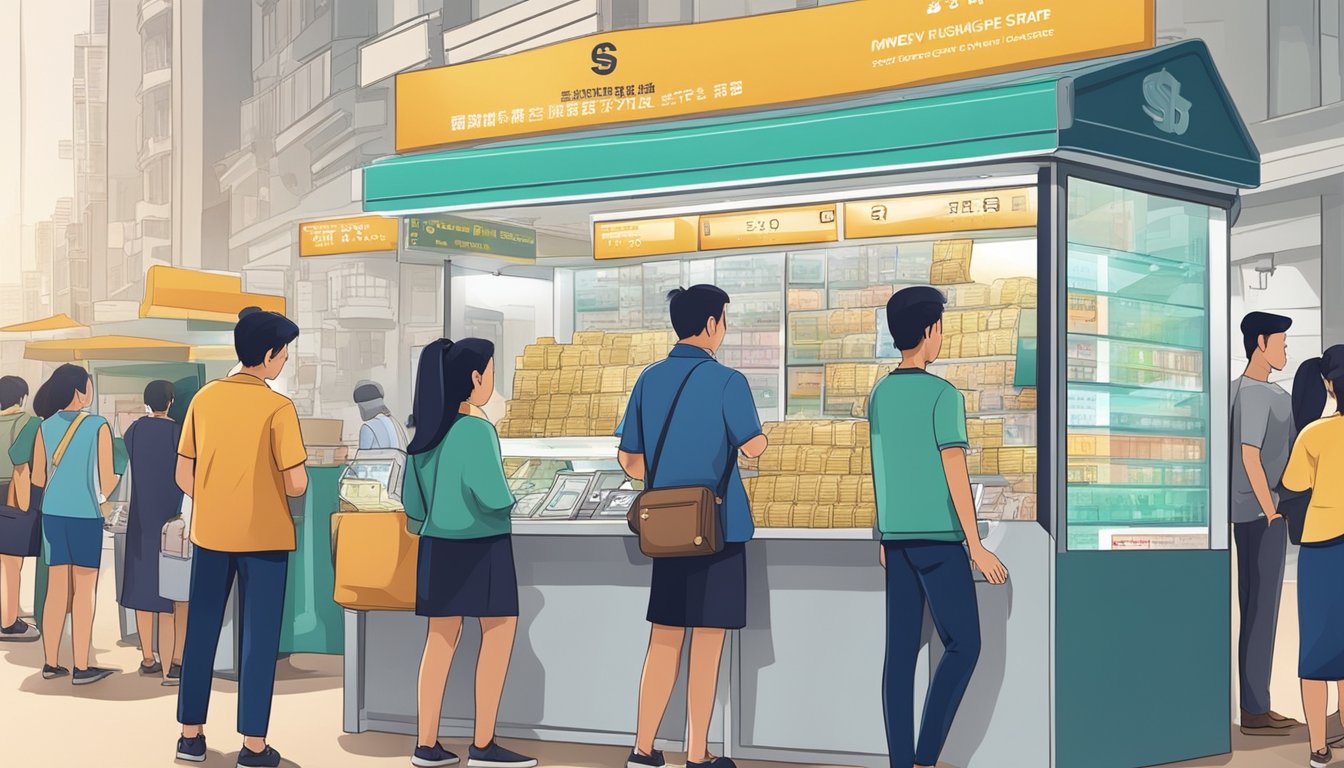
What’s the typical commission rate for currency conversion in Singapore?
Commission rates for currency conversion in Singapore can vary depending on the money changer. However, it is generally about 1-2% of the amount exchanged. Some money changers may charge a flat fee instead of a percentage, so it’s important to check the rates before exchanging your currency.
Where might one find the most favourable exchange rates in Singapore?
The most favourable exchange rates in Singapore can be found at licensed money changers, which are regulated by the Monetary Authority of Singapore (MAS). These money changers usually offer better rates than banks and hotels. You can check online for the latest exchange rates offered by different money changers.
Is there a minimum sum required when exchanging money at Singaporean money changers?
Yes, some money changers in Singapore have a minimum sum required for currency exchange. The minimum sum can vary depending on the money changer, but it’s usually around $100 or $200. It’s best to check with the money changer beforehand to avoid any surprises.
Which is more advantageous at money changers: a higher ‘We Sell’ or a lower ‘We Buy’ rate?
It’s generally more advantageous to look for a money changer with a lower ‘We Buy’ rate and a higher ‘We Sell’ rate. This means that you’ll get a better exchange rate when you’re selling your currency back to the money changer.
How can I calculate the difference between ‘We Buy’ and ‘We Sell’ prices?
The difference between ‘We Buy’ and ‘We Sell’ prices is known as the spread. You can calculate the spread by subtracting the ‘We Buy’ rate from the ‘We Sell’ rate. For example, if the ‘We Buy’ rate is $1.30 and the ‘We Sell’ rate is $1.40, the spread is $0.10.
Are there any hidden costs I should be aware of when using a money changer in Singapore?
Some money changers in Singapore may charge additional fees or offer unfavourable rates if you’re exchanging certain currencies or denominations. It’s important to check for any hidden costs before exchanging your currency. Additionally, some money changers may offer a lower rate if you’re exchanging a large amount of money, so it’s always a good idea to shop around for the best deal.




